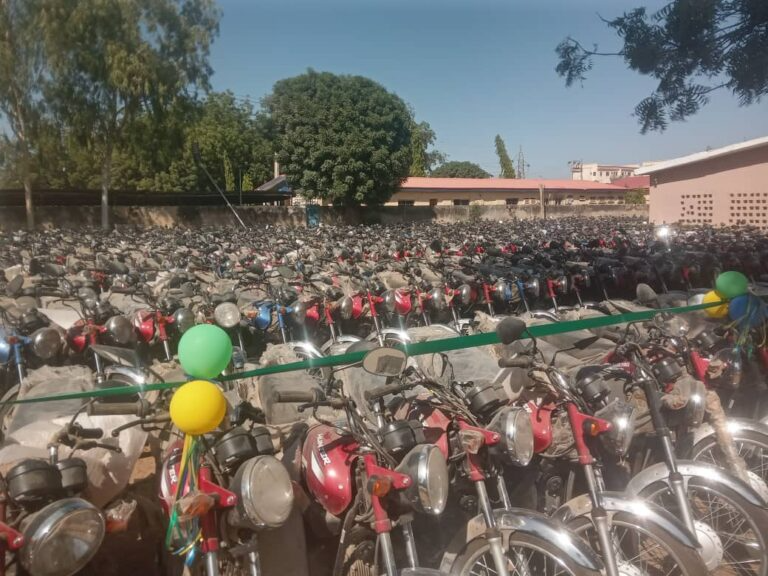Nigeria’s new Education Minister, Olatunji Alausa, during a briefing with journalists, addressed the nation’s urgent educational challenges, describing the country’s out-of-school children statistics as concerning.
The minister said the situation is not good for the sustainability of the country, noting that President Tinubu is committed to reducing the number of out-of-school crises, declaring the issue a top priority for his administration.
“We have the heavy burden of having the highest number of out-of-school children in the world; this is not good for the sustainability of the country,” he said.
To tackle this challenge, he added that the ministry has developed an agenda and a work plan aimed at targeted initiatives to improve school enrollment.
He also announced plans to create incentive tools to drive enrollment rates.
The minister said: “We will work with the Ministry of Humanitarian Affairs, and we will also look for her own budget to give conditional cash transfers to mothers to send their kids to school.
“We need to adequately nourish the children for better brain development to help develop our human capital and human capacity.”
He added that benchmarks and monthly enrollment rate targets with the use of blueprints and KPIs would be set to ensure consistent progress.
Nigerians need credible journalism. Help us report it.
Support journalism driven by facts, created by Nigerians for Nigerians. Our thorough, researched reporting relies on the support of readers like you.
Help us maintain free and accessible news for all with a small donation.
Every contribution guarantees that we can keep delivering important stories —no paywalls, just quality journalism.
Curriculum revisions
Mr Alausa highlighted the importance of revising the basic education curriculum, which was recently developed by the Nigerian Educational Research and Development Council (NERDC).
He noted that the new curriculum will reflect the needs of the 21st century and the need for a strong focus on civic education.
ALSO READ: Education system to be 80% practical – Minister
“We will put a lot of emphasis on civic education, where we will educate the children at the basic education level to the post-basic education level on patriotism and what it means in Nigeria,” he said.
Focus on STEMM education
To realign the education system with contemporary needs, the Minister announced an increased focus on Science, Technology, Engineering, Mathematics, and Medical Sciences (STEMM).
He acknowledged the challenge of “unemployable graduates” and stressed the importance of refocusing the education system to build relevant skills.
He said: “Today we have been dealing with a lack of manpower to service our hospital, to provide care for our people. We will focus and redirect our effort on STEMM. We will work with the universities, polytechnics, and mono-technics to do that. From now on, we will drive the agenda focusing heavily on STEMM”
He added that the collaboration with the institutions aims to boost programmes in specific areas and address workforce gaps, especially in the healthcare sector.
Vocational and practical skills development
The minister further outlined the government’s commitment to technical vocational education and training.
The plans include enhancing the infrastructure of technical colleges and working with private sector partners to create employment opportunities for graduates.
He emphasised the importance of practical training, noting that “80 per cent of our education will be on practical training and 20 per cent will be theoretical/classroom.”
He added that to further support vocational education, “the government will introduce stipends for students pursuing technical training and certify trainers to ensure quality instruction.”
To support this, he indicated plans to engage the private sector for collaboration to ensure the availability of jobs for young men and women.
Expanding training programmes
Mr Alausa announced a new training programme focused on renewable energy and stated that all agricultural universities would soon be required to establish mechanised farming initiatives.
“We will provide resources and funding so that they can begin to train people on practical skills,” he said.
Support PREMIUM TIMES' journalism of integrity and credibility
At Premium Times, we firmly believe in the importance of high-quality journalism. Recognizing that not everyone can afford costly news subscriptions, we are dedicated to delivering meticulously researched, fact-checked news that remains freely accessible to all.
Whether you turn to Premium Times for daily updates, in-depth investigations into pressing national issues, or entertaining trending stories, we value your readership.
It’s essential to acknowledge that news production incurs expenses, and we take pride in never placing our stories behind a prohibitive paywall.
Would you consider supporting us with a modest contribution on a monthly basis to help maintain our commitment to free, accessible news?
TEXT AD: Call Willie - +2348098788999

















 English (US) ·
English (US) ·